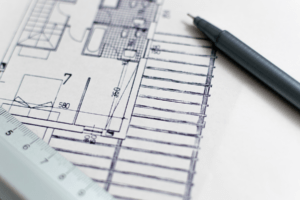 If you’re planning to build a new home or undertake a major renovation, you may be wondering how to finance the project. That’s where construction (build) mortgages come in. Construction (Build) mortgages allow you to borrow money to finance the construction or renovation of a property.
If you’re planning to build a new home or undertake a major renovation, you may be wondering how to finance the project. That’s where construction (build) mortgages come in. Construction (Build) mortgages allow you to borrow money to finance the construction or renovation of a property.
What is a Construction (Build) Mortgage?
A construction mortgage finances the construction or renovation of a property. Unlike a traditional mortgage, a construction mortgage finances the building of a home or the renovation of an existing one.
Other banks and lenders offer these mortgages, which work differently from traditional mortgages. With a traditional mortgage, you receive the full amount of the loan upfront and make payments over time. With a construction mortgage, the lender releases the funds for a construction mortgage in stages as the construction project progresses.
How Do Construction (Build) Mortgages Work?
Lenders release construction mortgages in stages, with each stage representing a different phase of the project. Typically, a construction mortgage is released in three to five stages, depending on the lender and the project by way of “draws”.
The framing stage is the second stage, completes the property’s framework.
The third stage is the lock-up stage, the property becomes fully enclosed and secure. In the fourth stage, the interior stage, installers add the interior finishes and fixtures.
In the final stage, the completion stage, the property becomes fully finished and ready for occupancy.
At each stage, the lender will send an appraiser to assess the progress of the construction project. If the appraiser determines that the work meets the agreed-upon plans, the lender will release the funds for that stage of the project.
What Do You Need to Qualify for a Construction (Build) Mortgage?
To qualify for a construction mortgage, you need to provide the lender with detailed plans and cost estimates. You will also need to provide proof of income and a down payment. The amount of the down payment will vary depending on the lender and the project. Typically the down payment is between 10% and 20% of the total cost of the project.
You will also need to provide a contract outlining the scope of the project, payment schedule and the timeline for completion. The lender will review the contract ensuring it is reasonable and the project will finish on time and within budget.
Construction mortgages typically have higher interest rates than traditional mortgages as lenders consider them riskier, seeking compensation for the risk.
Tips for Applying for a Construction (Build) Mortgage
To increase your chances of getting approved for a construction mortgage and ensure a smooth process, consider these steps:
- Work with an experienced builder
Choosing an experienced builder with a good reputation can help ensure the project is completed on time and on budget. It can also help reassure the lender that the project is a good investment. - Get detailed plans and cost estimates
Providing detailed plans and cost estimates for the project can help the lender understand the scope of the project and assess the risk. - Be realistic about the timeline
Construction projects can be unpredictable, so it’s important to be realistic about the timeline for completion. If the project takes longer than expected, it can delay the release of funds and increase the cost of the project.
- Have a contingency plan
It’s always a good idea to have a contingency plan in case something goes wrong with the project. This can include having extra funds set aside or having a backup plan for financing.
- Work with a mortgage broker: A mortgage broker can help you navigate the process of applying for a construction mortgage and find the best lender and terms for your needs.
A construction mortgage can be a great option for financing a new home or renovation project. By understanding how construction mortgages work and what you need to qualify, you can make an informed decision and ensure that your project is a success. Remember to work with an experienced builder, provide detailed plans and cost estimates, be realistic about the timeline, have a contingency plan, and consider working with a mortgage broker to find the best lender and terms for your needs.
